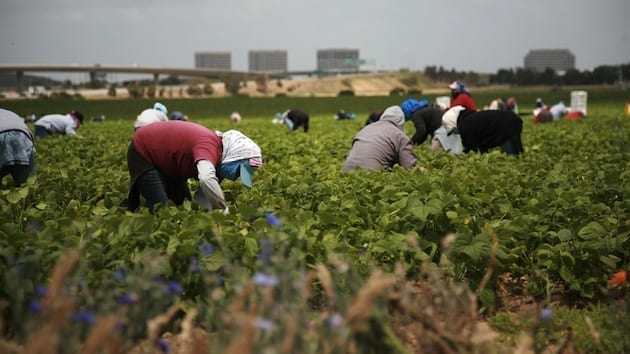
Mar 30, 2015
Striking farmworkers in Mexico are receiving international support for their efforts to secure decent living and working conditions and be paid a living wage. The women and men who pick berries and vegetables for the U.S. market make about $10 a day, and they see the employers’ latest offer to increase pay by 6 percent as a “slap in the face.”
In a letter to Mexico’s secretary of labor, the AFL-CIO urges the government to work with organizations representing the workers to rectify serious worker rights violations, among them employers’ refusal to pay overtime, child labor, worker exposure to pesticides and sexual harassment, as well as to release workers arrested for exercising their right to protest. (Read the letter in English and Spanish.)
A recent Los Angeles Times series on the farm laborers found many workers on export-oriented farms “essentially trapped for months at a time in rat-infested camps, often without beds and sometimes without functioning toilets or a reliable water supply.”
Further, the Times reports that “some camp bosses illegally withhold wages to prevent workers from leaving during peak harvest periods.”
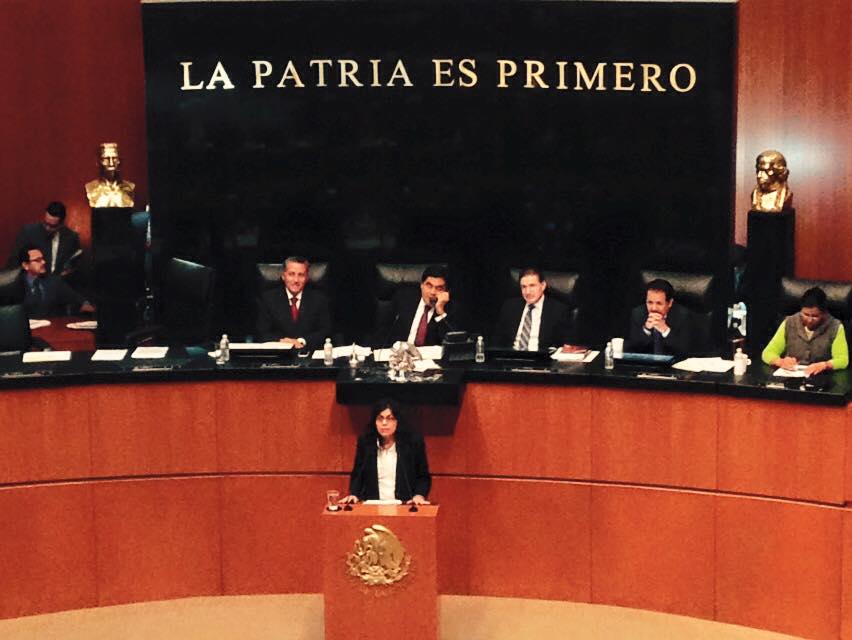
Mar 26, 2015
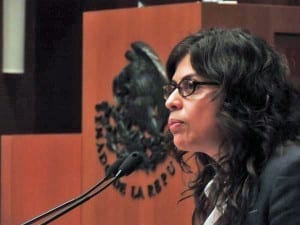
Alejandra Ancheita spoke before the Mexican Senate about the lack of human rights enforcement. Credit: Comisión de DDHHA
Alejandra Ancheita, founder and executive director of the Mexico City-based ProDESC (Project for Economic, Cultural and Social Rights), was recognized this week by the Mexican Senate, where she discussed the urgent need to address human rights in the country.
Ancheita told the Senate that torture and enforced disappearances are the country’s most serious problems and cited 242 documented attacks against female human rights defenders in 2013. In 95 percent of the cases, the perpetrators have not been brought to justice, she said. She went on to recommend that the Senate’s Human Rights Commission convene a committee to observe the situation involving alleged violations of farmworkers rights in Baja California.
Last year, Ancheita won the prestigious international Martin Ennals Award for Human Rights Defenders for her courage and tireless search for new ways to advance the rights of some of the most vulnerable workers in Mexico, including mine workers, migrant workers, child laborers and agricultural workers.
Ancheita, a Mexican lawyer and activist who leads the fight for the rights of vulnerable and excluded workers, migrants, communal landowners and indigenous communities, founded ProDESC in 2005. ProDESC is a longtime Solidarity Center ally whose work includes a campaign seeking justice for communal landholders in Ejido La Sierrita, Mexico, whose agreement with an international mining interest has been repeatedly violated by the company.
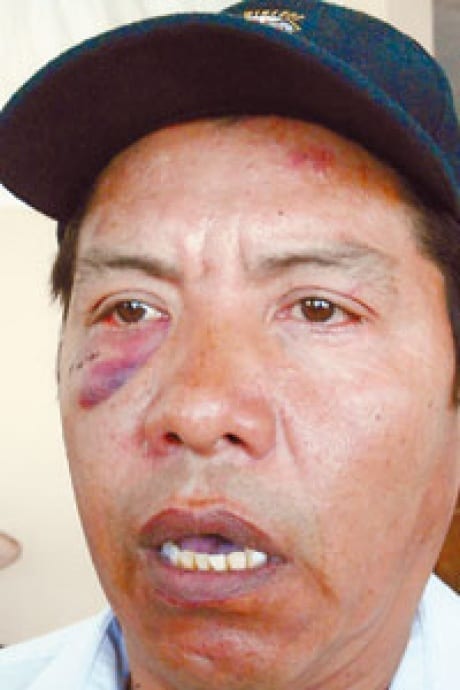
Mar 13, 2015
A union activist of the IndustriALL Mexican affiliate National Miners’ Union SNTMMSRM, also known as Los Mineros, has been severely beaten at the Gunderson railcar plant owned by the Greenbrier companies in Monclova, Coahuila state of Mexico. (Click here to sign a petition protesting the assault.)
On March 7, while he was distributing union leaflets, Jesus Antonio Campos Valle, leader of the SNTMMSRM organizing campaign at the Gunderson railcar plant was viciously attacked by several men, two of whom were identified as Hermilo Falcón López and “El Grande” Lumbreras Piña, members of the non-independent Confederation of Mexican Workers (CTM), which holds a protection contract at the company and prevents other unions from democratic representation of workers’ interests.
The SNTMMSRM denounced this attack as well as other acts of intimidation and harassment by the local leaders of the CTM, Jorge Carlos Mata and Mario Dante Galindo, directed at workers from Gunderson, Teksid and Pytco.
Workers at these three plants launched strikes in April 2014 to protest the lack of democratic representation by the CTM, a “protection union” that colludes with the employers and does not allow the workers to see their collective bargaining agreements. To resolve the strikes, the three companies agreed to recognize SNTMMSRM, but later backtracked and fired union leaders, including Campos.
Campos won a lawsuit ordering his reinstatement for unjust dismissal, but the company has appealed.
SNTMMSRM is now fighting a protracted legal battle against the companies and the CTM, who are supported by Alonso Ancira, the head of the AHMSA steel company, which is the largest employer in Monclova.
“They beat and kicked me in my face, head, chest, ribs and shoulders, all the time threatening me and saying they were from the CTM and they knew me and my family,” Campos stated. After receiving medical treatment, Campos filed a criminal complaint against the CTM leaders.
Jyrki Raina, IndustriALL general secretary addressed to the president of Mexico and denounced this violent act of aggression as “part of systematic attacks organized by the company in collusion with CTM intended to undermine workers’ right to elect democratically their own representative to collective bargaining. This is an inalienable right of workers envisaged in the ILO Convention 87”.
Send an online protest message to delivered to Enrique Peña Nieto, President of Mexico; Ruben Moreira, Governor of Coahuila; and William Furman, CEO of the Greenbrier Companies.

Mar 6, 2015
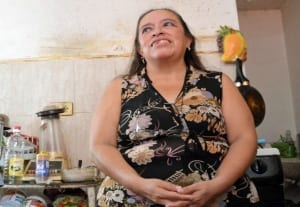
Tonantzin Nava: “As women, we must raise our voices and keep pushing for better opportunities for all of us.”
At an auto parts factory in Piedras Negras, Mexico, women getting off work after midnight board private buses the company pays for to transport them home. But until recently, the bus drivers refused to take the women all the way to their houses, instead letting them off far from their residences and forcing them to walk alone in one of Mexico’s most unsafe areas, especially for women. (El articulo en español aquÍ.)
All that changed after the women joined together and circulated a petition asking their employer to require the bus drivers to take them to their houses, which they now do.
“To me this was important not only because now we can say to our kids that we’ll be back from work safe at night, but also because more women in our neighborhoods will consider working at the factories,” says one worker, Tonantzin Nava. “As women, we must raise our voices and keep pushing for better opportunities for all of us, and to ensure that our jobs provide for our safety.”
The women workers recognized they have the power to stand up for their safety after participating in the Gender and Women’s Empowerment for Action (GEMA) training, a program sponsored by the Solidarity Center and the Border Committee of Women Workers (Comité Fronterizo de Obrer@s, CFO).
Launched in 2013, GEMA (“gemstone” in Spanish), is unique because women workers are at its center. It was designed by and for women workers in the maquilas of Mexico’s northern border, and the workers guide the program facilitators in the types of training, analysis and planning most appropriate and useful for them. GEMA participants tell facilitators they want formal-sector jobs, but with decent working conditions. If maquila jobs—where women predominate—are not decent jobs, they perpetuate gender-based discrimination and violence and do not help families and their communities.
Economic hardship contributes to the daily potential for physical danger, and accentuates the risks that women in particular face. The GEMA program helps women analyze these issues and develop plans of action to address them.
In border areas like Piedras Negras, women make around $1 per hour in the maquiladoras, and most face unsafe and unhealthy conditions in an environment where labor laws are typically not enforced. Chronic injuries such as carpel tunnel and circulation problems from long hours of backbreaking and repetitive work are the norm, yet access to health care and workers’ compensation is sporadic.
Piedras Negras, in Coahuila state, across from Eagle Pass, Texas, is in the heart of northeastern Mexico, where the number of women murdered jumped more than 500 percent between 2001 and 2010. While the cause of these deaths varies, the deterioration of the social fabric, which has enabled such violence to surge unimpeded, stems in large part from the economic marginalization of women and their families.
Across Mexico, some 4,000 women disappeared in 2011–2012, part of a pandemic of violence against women at a time when 10 million workers were unable to provide the basic needs of their families, and when the number of women entering precarious jobs grew faster than the rate at which they were entering well-paid formal sector jobs.
To reach and empower as many women as possible, GEMA participants go on to share their insights and training with other women, meeting with them in their homes, where these “safe” environments provide them the social space to get to know one another and develop bonds of solidarity, figure out their most pressing problems and devise courses of action to address them. The women say GEMA gives them the tools to rebuild the social fabric of their communities.
“In GEMA, we have developed our self-confidence as well as skills and talents that we didn´t even know we had,” says Yohanna Esparza. “I am now facilitating discussion groups with other women and we are starting to walk steadfastly together, with our heads held high, on the path toward our dreams of a better future.”
Other women who have taken part in GEMA have gone on to participate in weekly roundtable meetings with management at an auto parts factory, to channel concerns and develop solutions.
GEMA is now expanding its reach. In 2014, the CFO and Solidarity Center began jointly facilitating a women’s empowerment and leadership program for women mineworkers with the National Union of Mine, Metal, Steel and Similar Workers of the Mexican Republic (SNTMMSSRM) and United Steelworkers. The union leadership is unanimous in declaring that when women are strong, and make their voices heard, unions are strong and everyone benefits from improved living and working conditions—workers, employers and society.
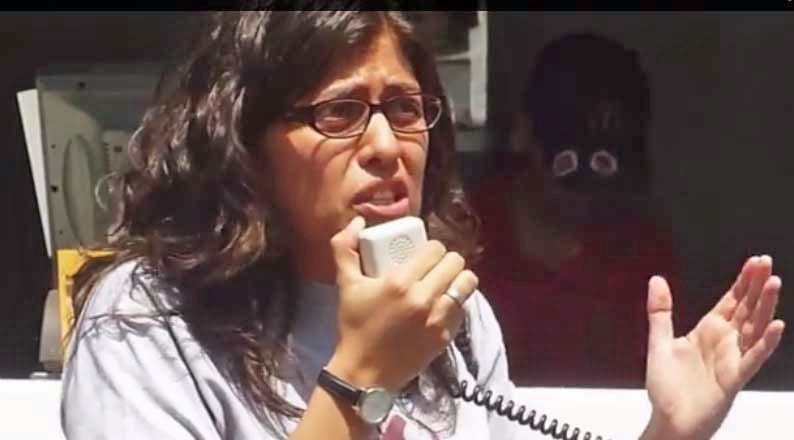
Oct 7, 2014
Alejandra Ancheita, founder and executive director of the Mexico City-based ProDESC (Project for Economic, Cultural, and Social Rights), today won the prestigious international Martin Ennals Award for Human Rights Defenders.
The award recognizes her courage and tireless search over the past 15 years for new ways to advance the rights of some of the most vulnerable workers in Mexico, including mine workers, migrant workers, child laborers and agricultural workers.
Ancheita, a Mexican lawyer and activist who leads the fight for the rights of vulnerable and excluded workers, migrants, communal landowners and indigenous communities, founded ProDESC in 2005. ProDESC is a long-time Solidarity Center ally whose work includes an ongoing campaign seeking justice for miners denied their right to organize for improved working conditions at the La Platosa mine in La Sierrita, Durango, Mexico.
“The award demonstrates that power can be held accountable and that worker activists, union leaders, students and others who literally risk their lives for justice do not fight unnoticed or alone,” says Solidarity Center Executive Director Shawna Bader-Blau. “We’re so excited that Alejandra has received this honor and humbled to stand with her and ProDESC in the struggle for worker and human rights throughout Mexico.”
The Martin Ennals Award for Human Rights—known as the “Nobel” of human rights awards, is selected by the international human rights community and given to human rights defenders who have shown deep commitment and face great personal risk. Members of the organization include Human Rights Watch and Amnesty International.
Watch a video about Ancheita.







